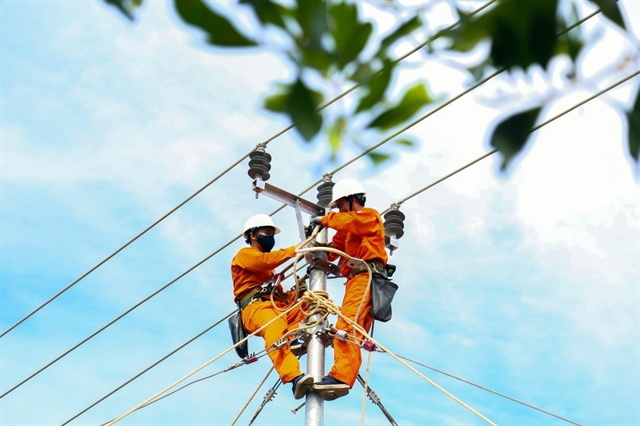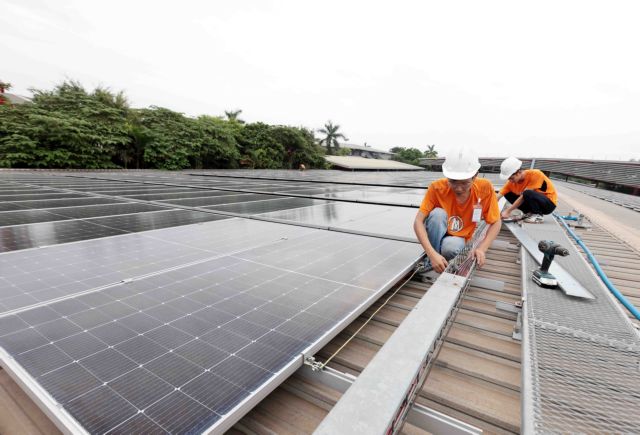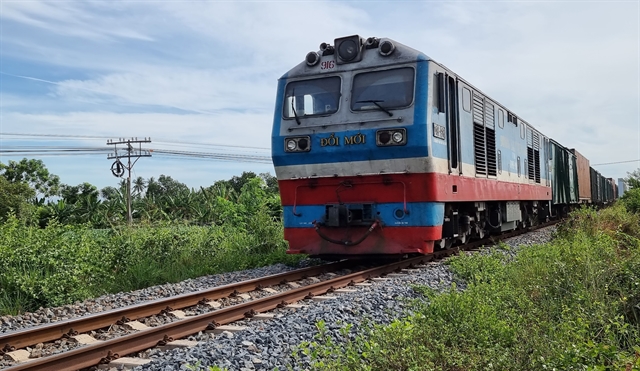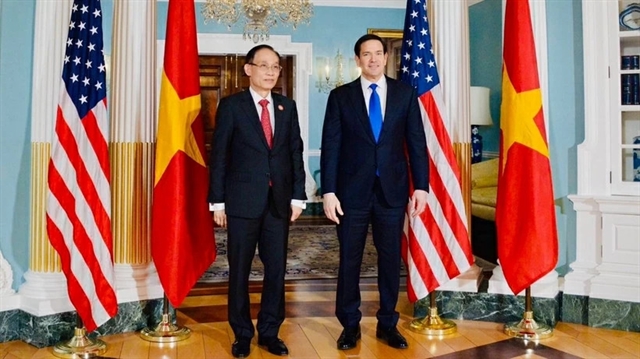 Economy
Economy

 |
| Workers inspecting the wiring from rooftop solar panels at the Maxport 8 factory in Vũ Thư District, Thái Bình Province. VNA/VNS Photo Trần Việt |
HÀ NỘI — Experts have emphasised the need to revise Việt Nam’s Electricity Law to align with the Party's energy policies and ensure consistency across the nation’s legal framework.
Having been in effect for nearly 20 years, with four previous amendments, the law still faces challenges that the current provisions have yet to fully address.
The draft amendment seeks to establish a unified, competitive and transparent energy market, while promoting renewable energy investment and introducing market-based pricing for various energy sources. It also aims to foster technological development and regulate electricity pricing.
According to economic expert Associate Professor Dr Nguyễn Thường Lạng, two key aspects that should be prioritised in the new law are the integration of green standards and smart technology, as well as the updating of management benchmarks.
He underscored the necessity of restructuring the management framework to ensure the successful execution of significant electricity development initiatives, including Power Development Plan VIII, the National Energy Development Plan and the Politburo’s resolution on national energy strategy orientations.
"The law must not only regulate, but also drive the advancement of technology and the electricity sector itself. This will, in turn, streamline and improve management systems," Lạng told Vietnamplus.vn.
Việt Nam's power sector has attracted hundreds of investors over the past five years, with renewable energy sources such as wind and solar, now making up nearly 30 per cent of the country's total capacity.
However, to accelerate future energy projects, especially those under Plan VIII, regulatory changes are essential.
Director of the Clean Energy and Green Growth Research Centre Hà Đăng Sơn said that clarity in legal regulations regarding bidding and auctions, as well as the specific responsibilities of investors in electricity projects, was essential. He also called for clear accountability to address risks and overcome legal obstacles.
The draft Electricity Law includes nine chapters and 119 articles, focusing on key areas such as ensuring national energy security, encouraging renewable energy development, fostering competitive electricity markets and improving safety regulations for electricity usage and infrastructure.
Senior advisor at UBP, Phan Xuân Dương, the investor in two wind power plants in Sóc Trăng Province, said that the revision was crucial in the context of Việt Nam’s green transition towards net-zero emissions by 2050.
“Offshore wind projects, as well as onshore wind initiatives, are currently struggling to secure domestic funding. To address this, the draft amended Electricity Law should establish connections with other legislation, including the Investment Law and financial management laws, in order to broaden opportunities for attracting both private and foreign investment,” Dương said.
Electricity safety has also been flagged as a priority, particularly with the rise of renewable sources.
Vũ Quang Đăng from the Asian Development Bank recommended that safety guidelines cover emerging technologies such as floating solar power and battery energy storage systems (BESS), which are expected to grow in prominence.
During recent discussions on the draft law, National Assembly deputies underscored the importance of synchronising regulations with other laws, particularly those related to renewable energy and ensuring the new legislation is clear, practical and adaptable to global trends in the electricity sector.
Several provinces are actively gathering feedback on proposed amendments to the Electricity Law.
At a recent conference in Cao Bằng, the provincial Electricity Company called for policies to support electricity pricing in rural, mountainous, border and disadvantaged areas, complaining the current tiered pricing system is unfair to households.
They urged a roadmap to eliminate cross-subsidies between customer groups, ensuring social equity, market-driven principles and encouraging energy savings in production.
The company also recommended detailed regulations for infrastructure investment, on extending the national grid to remote areas and offering separate public electricity supply for disadvantaged regions.
In Hòa Bình Province, delegates raised concerns over grid infrastructure's inconsistency, especially in remote areas still lacking reliable access. They also discussed non-compliance with safety regulations and renewable energy development.
The Hòa Bình Power Company has called for the swift passage of both the Renewable Energy Law and the amended Electricity Law, while also urging central budget funding for energy-saving programmes.
Representatives from Southern Power Corporation (EVNSPC) and Đồng Nai Power Company contributed feedback on investment regulations for medium and low-voltage grids, transmission safety and electricity cut-offs for legal violations.
At a voter consultation meeting in Quảng Bình Province, delegates broadly supported passing the amended law.
Nguyễn Vũ Long, Deputy Director of Quảng Bình Power Transmission, called for clearer ownership rights when transmission corridor safety is violated and for compensation for damages outside of contracts.
Other proposed amendments included bidding for power projects, public-private partnerships, renewable energy policies and time-based electricity pricing. Nuclear energy policies and emergency power projects were also discussed. — VNS




